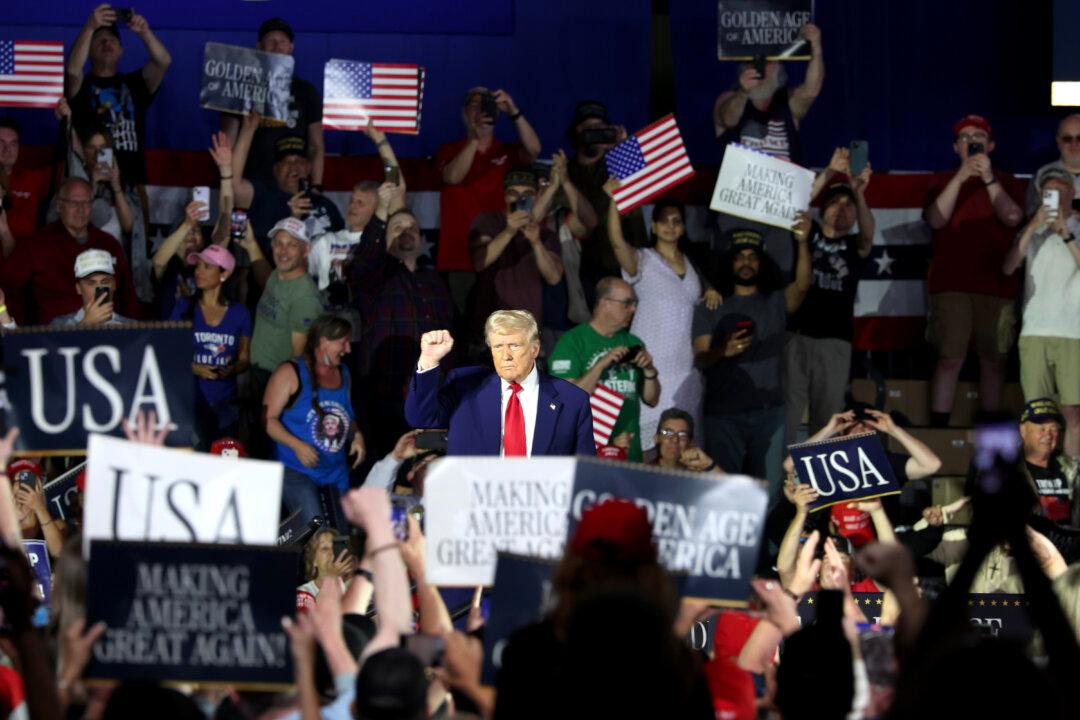“Over the past four years, this administration has lived by one beautiful phrase—Made in the USA—and two simple rules—Buy American, Hire American,” the report states.
The policies adopted not only created jobs and prosperity, but also strengthened the U.S. manufacturing base and the defense industrial base, White House trade adviser Peter Navarro told reporters during a conference call.
Navarro, who accused Democratic presidential candidate Joe Biden of plagiarizing Trump’s strategy, said that the president delivered “much more than simply ‘Buy American’ rules in government procurement.”
The White House report came in response to Biden’s $700 billion economic plan, which included his “made in all of America” plan.
During the call, Navarro accused Biden of backing the North American Free Trade Agreement (NAFTA) with Mexico in 1994 and the accession of China into the World Trade Organization in 2001.
‘Buy American, Hire American’
Trump signed at least 10 executive orders since he took office to support and expand the “Buy American” procurement policies, according to the report. One of the orders, for example, has minimized the use of unnecessary waivers.Domestic procurement increased to $419 billion in the Trump-Pence years from $332 billion in the Obama-Biden years, a 26 percent jump, according to the report.
Trade Policy and Tariffs
The report also notes Trump’s trade policies and tariffs, which have been a cornerstone of his economic plan. His rejection of globalism, focus on national security, and retaliation against unfair trade practices marked a fundamental shift in America’s trade policy.“Going back to Bush-Cheney and through Obama-Biden, we lost over 70,000 factories and millions of manufacturing jobs to the NAFTA and China trade shocks,” Navarro said.
In one of his first acts as president, Trump withdrew the United States from the Trans-Pacific Partnership. He signed the new United States–Mexico–Canada Agreement, which replaced NAFTA, and also struck trade deals with Japan and South Korea.
Trump began a tariff campaign in 2018, mainly targeting China, as part of his strategy to end unfair trade practices against the United States.
Despite skepticism, tariffs “have been enormously successful,” Navarro said.
He stressed the importance of tariffs in countering “the economic aggression of communist China and its seven deadly sins.”
“These sins range from cyber-intrusions by Chinese government officials to steal American business secrets, intellectual property theft, and forced technology transfer, to the dumping of products below cost into our markets, the abuse of state-owned enterprises to bully American companies, and a long history of currency manipulation,” according to the report.
The report touches on tariffs on steel, aluminum, solar panels, and washing machine imports and their positive effects on U.S. manufacturers and jobs.
Defense and Shipbuilding
The report cites the increase in the defense budget and foreign military sales as the fourth dimension in Trump’s strategy to support the American industrial base.“The increases in the defense budget translate directly into increased American manufacturing because much of the production in America’s defense industry follows very strict ‘Buy American’ rules,” Navarro said.
The White House estimates that the hikes in the defense budget and sales “support 1.1 million jobs and contribute about a quarter-point of GDP growth per year.”
Navarro also mentioned the Jones Act and improvement in shipbuilding under the Trump administration. Passed in 1920, the Jones Act requires that any vessel transporting goods between two points in the United States be U.S.-built, at least 75 percent U.S.-owned, and at least 75 percent U.S.-crewed.
Navarro said the United States is competing with communist China, which “provides really extreme subsidies to their shipbuilding industry.”
The Trump administration began to turn around the slump in shipbuilding, he said.
“During the eight years in the Obama-Biden administration, the number of U.S. flagships dropped 22 percent, and gross tonnage fell 13 percent. Right now, we’ve bounced off the Obama low by 10 percent, and tonnage is up to 7.3 million tons.”





